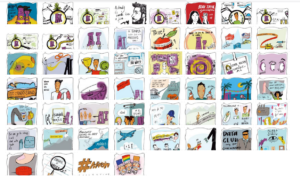AI and Young People

Last December, the Youth Department of the Council of Europe organised a seminar on Artificial Intelligence and its Impact on Young People. The aim of the seminar was to explore the issues, role and possible contributions of the youth sector in an effort to ensure that AI is responsibly used in democratic societies and that young people have a say about matters that concern their present and future. The seminar looked, among other things, into three dimensions of AI”
- AI and democratic youth participation (including young people’s trust/interest in democracy)
- AI and young people’s access to rights (including social rights)
- AI and youth policy and youth work
According to the report of the seminar, the programme enabled the participants to put together their experience and knowledge in proposing answers to the following questions:
- What are the impacts of on young people and how can young people benefit from it?
- How can the youth sector make use of the capacities of to enhance the potential of youth work and youth policy provisions for the benefit of young people?
- How to inform and “educate” young people about the potential benefits and risks of AI, notably in relation to young people’s human rights and democratic participation and the need to involve all young people in the process?
- How does AI influence young people’s access to rights?
- What should the youth sector of the Council of Europe, through the use of its various instruments and partners, do about AI in the future?
Not only is there a written report of the seminar but also an excellent illustrated report. Sadly it is not in a format that can be embedded, but it is well worth going to the Council of Europe’s web page on AI and scrolling to the bottom to see the report.
 Sipping a glass of wine on the terrace last night, I thought about writing an article about proxies. I’ve become a bit obsessed about proxies, ever since looking at the way Learning Analytics seems to so often equate learning with achievement in examinations.
Sipping a glass of wine on the terrace last night, I thought about writing an article about proxies. I’ve become a bit obsessed about proxies, ever since looking at the way Learning Analytics seems to so often equate learning with achievement in examinations.
